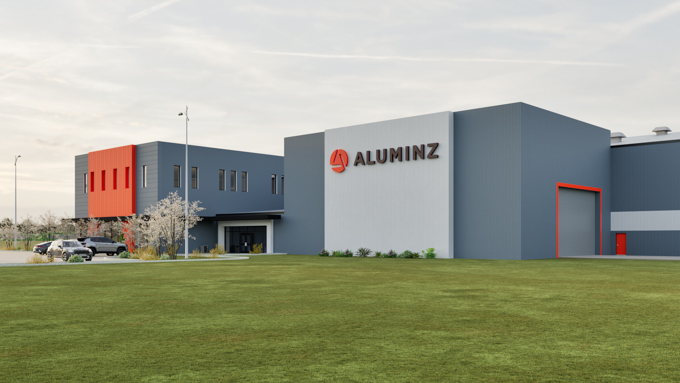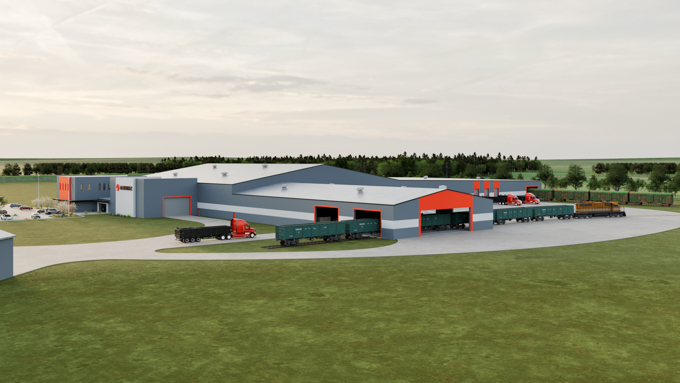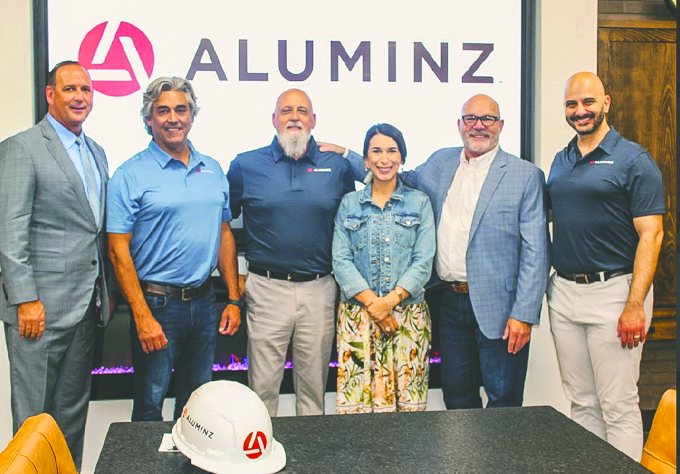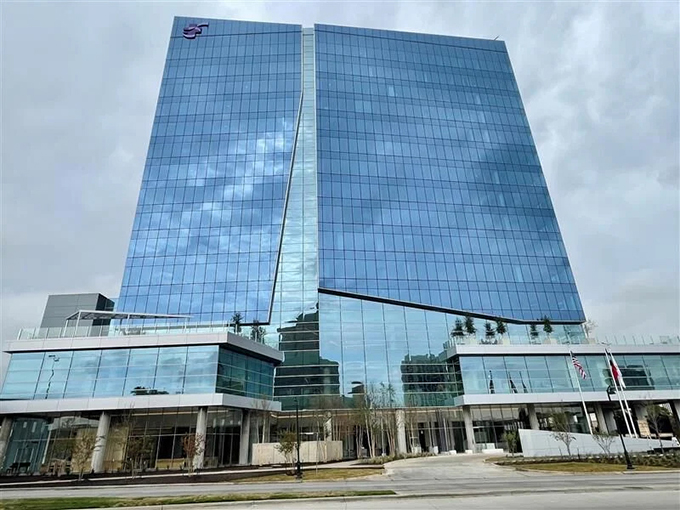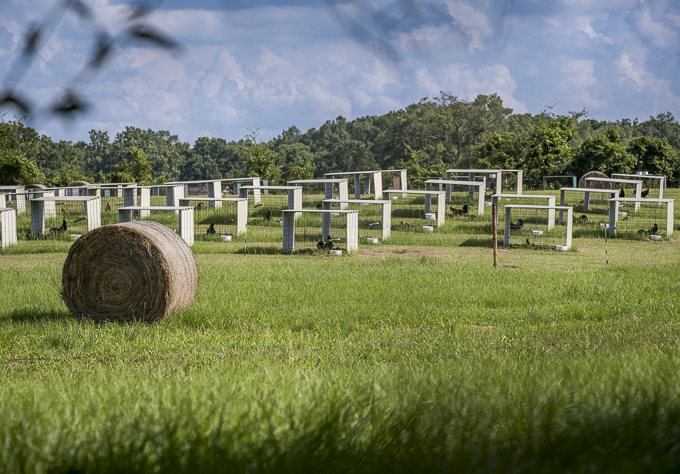First U.S. zero-landfill aluminum company to open in Mount Pleasant, create 130 jobs
Published 9:00 am Wednesday, July 30, 2025



Editor’s Note: The spelling of Richard Mayenknecht’s name was corrected.
MOUNT PLEASANT – A company aiming to eliminate waste from aluminum production will invest more than $50 million to open its first-of-a-kind facility in Titus County and create more than 130 jobs.
Aluminz will be the United States’ first aluminum production facility that sends no aluminum or aluminum byproducts to a landfill. The company will extract aluminum from materials often discarded during aluminum processing. Aluminum byproducts can be turned into useful materials for other industries.
Trending
“We’re going to be the greenest aluminum producer in America,” said the company’s CEO, Richard Mayenknecht.
Company leaders plan to build a 220,000-square foot facility near Winfield and begin production by early 2027.
The Mount Pleasant Economic Development Corp. will give the company $7 million as part of an economic performance agreement to bring Aluminz to the area, and Titus County is giving the company a 15% property tax reduction for 10 years.
Titus County Judge Kent Cooper said he is thrilled the company will locate its facility in the area, and U.S. Rep. Nathaniel Moran, R-Tyler, said he’s supportive of the project, too.
How it works
Aluminz’s work can be summed up with this term: aluminum valorization. Valorization is the act of making something valuable, and that’s what Aluminz will do with the end product of aluminum dross, which largely winds up in landfills.
Aluminum dross is a mixture of aluminum and other materials that forms on the surface of molten aluminum during processing. The dross is separated from aluminum during production, even though it still contains between 10% and 65% aluminum.
Trending
Getting aluminum out of dross hasn’t been feasible in the U.S. because the technology required to do it hasn’t been readily available, and the additional materials have gone to waste, too. Each year, more than 1 million metric tons of dross are sent to landfills. That dross contains $150 million in recoverable aluminum and $30 million in salt flux and non-metallic oxides, Aluminz leaders estimate.
Aluminz, however, will extract aluminum from dross and break down the other materials in dross: mainly salt, ammonium sulfate and salt oxide, Mayenknecht said. Salt will be re-crystallized and used in the furnaces at Aluminz; ammonium sulfate can be sold to agricultural companies as a fertilizer additive; and salt oxide can be sold to concrete manufacturers as an ingredient in quick-set cement.
“Everything goes into products, and nothing goes into landfills,” Mayenknecht said.
Europe has used technology to turn dross into valuable products for about 20 years, but Aluminz will be the first company in America to do so. The company will use a rotary tilting furnace developed by GHI Smart Furnaces, a manufacturer aiming to achieve net-zero emissions from aluminum processing by 2050.
Aluminz will process about 140,000 metric tons of dross, salt cake and scrap aluminum per year, and the company has plans to expand.
“We’re taking this technology global,” Mayenknecht said. “Here in the U.S., there’s a need for multiple facilities. And globally, there’s about 5 million metric tons per year going into landfill.
“That’s the whole mission of Aluminz is to create full circularity and to make sure that we’re not losing stuff that we know better to keep out of the landfill.”
Economic impact
Cooper, Moran and Mayenknecht said the project will have a sizable impact on the Titus County economy.
Aluminz will build its facility on a 155-acre tract south of U.S. 67, placing it near Interstate 30 and the NETEX rail line, allowing the company to haul products in and out via rail and truck.
As part of its performance agreement with the economic development corporation, the company must meet certain employment requirements. The agreement functions as a forgivable loan from the economic development corporation, so as long as the company fulfills the agreement, it won’t have to repay the $7 million loan.
The company will pay about $5 million over the course of 30 years to lease the 155-acre tract from the economic development corporation. Cooper said the company will pay roughly $500,000 in property taxes annually.
Mayenknecht said the company will have “almost 175 high-paying” jobs by its fifth year of production that won’t require college degrees. People can be hired after graduating high school and later in life, too.
The company aims to begin production in late 2026 or early 2027.
“We’re planting a seed here in Northeast Texas that will attract other aluminum companies to come to northeast Texas and be associated with us,” Mayenknecht said.
Environmentally friendly facility
The company’s process of aluminum valorization will prevent products from going to landfills, positively affecting the environment. The production plant itself will be environmentally friendly, too.
The company will build a 22-acre, 7.5-megawatt solar farm to help power its operations. The company will purchase power from Southwestern Electric Power Co.
The solar farm will help reduce the facility’s carbon footprint, which will be significantly lower than that of other aluminum production facilities. The company will emit 0.07 pounds of carbon per pound of aluminum produced, which is 99.6% less than the emissions from primary aluminum production, Mayenknecht said.
The facility will be able to capture about 5 million gallons of rainwater from the rooftop of its building per year, and that water will be used in the production process, he said. Additional water will be supplied by the Tri-Special Utilities District.
The company will use natural gas to fire its furnaces and will use burner technology that emits less carbon dioxide, Mayenknecht said.
“This facility will be a very, very green building itself. We’re using a lot of recycled materials in it, and every consideration is for protecting the environment,” he said.
The plant’s leaders also are thinking about their neighbors: Materials will be unloaded only during the daytime to minimize noise, and a large “green zone” will be maintained around the property to keep space between the facility and neighboring areas.
Larry Harmon is the company’s co-founder and chief operating officer. He and Mayenknecht have worked in the aluminum industry for more than 20 years.
Why Northeast Texas?
Mayenknecht said Titus County was a good location for Aluminz based on workforce availability and the proximity of the location to interstate and rail networks.
“Larry and I have both worked around the world, and Titus County was just such a great location for us,” Mayenknecht said. “The people, the community itself and the environment – it’s a beautiful part of America.”
In a statement to the News-Journal, Moran said the company’s arrival in East Texas is great news for the region.
“It’s a clear sign that East Texas continues to be a place where businesses want to plant roots and grow,” the East Texas congressman said. “It’s also the kind of effort we’ve worked to support through legislation — cutting red tape, boosting American manufacturing and making rural communities more competitive. I’m thankful for the local leaders who helped move this forward and look forward to seeing the long-term impact it’ll have on families and the local economy.”
Cooper said he’s excited about the support Aluminz will bring to the Winfield and Mount Pleasant communities.
“Titus County is committed to the success of Aluminz because we are better together as we grow together,” he said.


